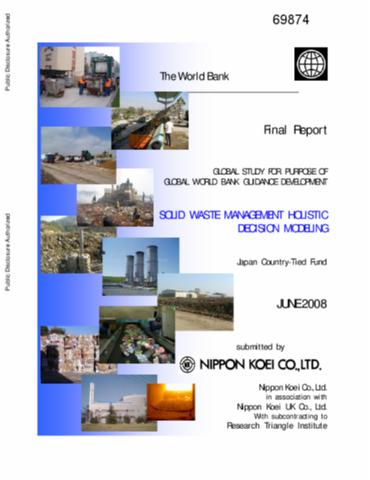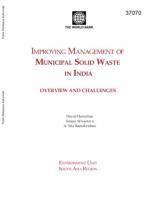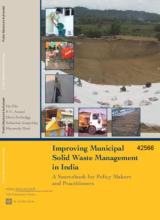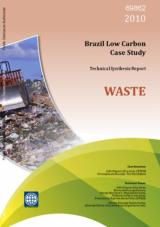
-
Country/City
World
-
Topics
Technology, Management, Recycling, Disposal
-
Published On
June 1, 2008
-
Author(s)
The World Bank
This study provides support to the Bank's ability to conduct client dialogue on solid waste management technology selection, and will contribute to client decision-making. The goal of the study was to fully explore the use of the United States Environmental Protection Agency and the Research Triangle Institute (EPA/RTI) holistic decision model to study alternative solid waste systems in a wide array of waste management conditions, using data collected from cities selected in each region of the world. Seven cities were selected from the different regions of development countries served by the World Bank. Their data was considered to be competent, and they cooperated with the study teams. They were: Buenos Aires, Argentina; Conakry, Guinea; Shanghai, China; Kathmandu, Nepal; Lahore, Pakistan; Amman, Jordan; and Sarajevo, Bosnia and Herzegovina. These cities represented a range of economic development factors, income, commercial, and industrial activity, in addition to their different physical settings and climate conditions. The cities were selected to see how such divergent variables would affect the outcome of the modeling analysis. Each of the selected cities is one of the largest within its country. In addition to the 7 target cities from developing countries, Kawasaki, Japan, and Atlanta, Georgia, were selected for comparative purposes. The resulting scenarios for each city, and cities in comparison to others, are shown in detail. While this report found the level of analysis adequate to indicate how technologies and scenarios compare, more detail would be required for deciding on the most cost-effective technology. The results of this study can be considered a useful guide for many cities, in understanding the waste disposal options most appropriate to their conditions.



